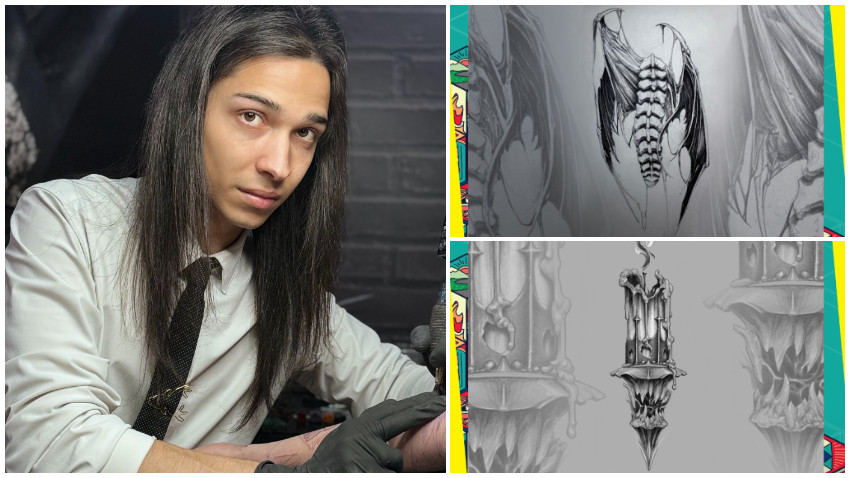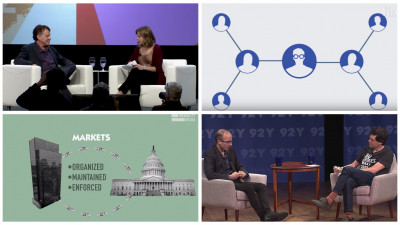Suntem utili?, ne gandim uneori. Si ce inseamna asta, de fapt? In mod obisnuit, lasam intrebarile astea pe seama filosofilor. Dar, uite, vine weekendul si prindem cateva secunde si pentru lasatul gandurilor sa se innoade. Nu va simtiti vinovati daca folositi zilele astea doua pentru a nu face nimic. Va spune asta un maestru al procrastinarii. Si daca va simtiti, totusi, exista un antidot mai jos. Avem cateva chestii si in partea cealalta: despre stiinta productivitatii si problema cu perfectionismul.
Am bifat utilul. Sa pastram loc si pentru gratuitati micute. Limbile pe care le vorbesc ceilalti, manierismele reporterilor, istoria documentarului TV si teatrul mecanic din secolul 18.
Inside the mind of a master procrastinator | Tim Urban
Tim Urban knows that procrastination doesn't make sense, but he's never been able to shake his habit of waiting until the last minute to get things done. In this hilarious and insightful talk, Urban takes us on a journey through YouTube binges, Wikipedia rabbit holes and bouts of staring out the window -- and encourages us to think harder about what we're really procrastinating on, before we run out of time.
How to Stop Procrastinating
Do you procrastinate? Are you forever putting things off till tomorrow, missing deadlines and pulling all nighters to get projects done last minute?
Gary Turk - Do It Now
For all you procrastinators out there:
The Science of Productivity
In today's crazy world, productivity is on the minds of many. So what can science tell us about the human brain and productive work? How do we become more efficient at working, and spend less time working overall?
The Problem With Perfectionism
We aim for perfection without a correct idea of what perfection might demand from us. To strengthen our resolve, we need to improve our picture of what sacrifices any achievement will demand.
70 People Try 70 Tongue-Twisters From 70 Countries | Conde Nast Traveler
More than 70 people try to say 70 tongue twisters from 70 countries. In this tongue twisters challenge, citizens from all around the world attempt funny tongue twisters in different languages.
The benefits of a bilingual brain - Mia Nacamulli
It’s obvious that knowing more than one language can make certain things easier — like traveling or watching movies without subtitles. But are there other advantages to having a bilingual (or multilingual) brain? Mia Nacamulli details the three types of bilingual brains and shows how knowing more than one language keeps your brain healthy, complex and actively engaged.
How interpreters juggle two languages at once - Ewandro Magalhaes
Language is complex, and when abstract or nuanced concepts get lost in translation, the consequences may be catastrophic. Given the complexities of language and cultural exchange, how do these epic miscommunications not happen all the time? Ewandro Magalhaes explains how much of the answer lies with the skill and training of interpreters to overcome language barriers.
Teen Speaks Over 20 Languages
Prodigy hyper-polyglot Tim Doner has been teaching himself languages since he was 13. He now speaks nearly 20 languages! Join Tim on a cultural tour of New York unlike any you've ever heard!
Why some speakers can't understand speakers who understand them - Asymmetric Intelligibility
Sometimes two languages are close enough that speakers of one understand the other. But it's not always fair. It's easier for Danish speakers to understand Swedish than the other way around. Same goes for Portuguese and Spanish. Many other languages, too. How come?
Why Do Reporters Talk Like That?
You've noticed it before - all news reporters talking in that weird, robotic voice when delivering the news. What up with that? Let's find out.
The History of the Television documentary
An exploration of the world's most popular entertainment, from the boy genius who invented it to the RCA General who made it a reality.
How Technicolor changed movies
What was "glorious Technicolor?" It was a groundbreaking technology — but it was more than that, too.
How one typeface took over movie posters
Why Hollywood kept using Trajan.
How was it made? 18th-century Mechanical Theatre
An 18th-century mechanical theatre was a technology of tricks and devices that changed scenes almost miraculously. With nothing of this scale from history surviving, watch as exhibition designer, Patrick Burnier and his team recreate a spectacular mechanical theatre for the exhibition, Opera: Passion, Power and Politics. Visitors to the exhibition will be able to watch regular performances of a galleon cast adrift in a storm, with the odd mermaid. With additional commentary from theatre historian, Professor Christopher Baugh and scenic designer, Simon Bejer.


![[Weekend Watch List] Procrastinare, productivitate, perfectionism si rolul omului pe pamant](https://media.iqads.ro/2018/07/collage9-3-cover-850.jpg?v=201810030425)






















